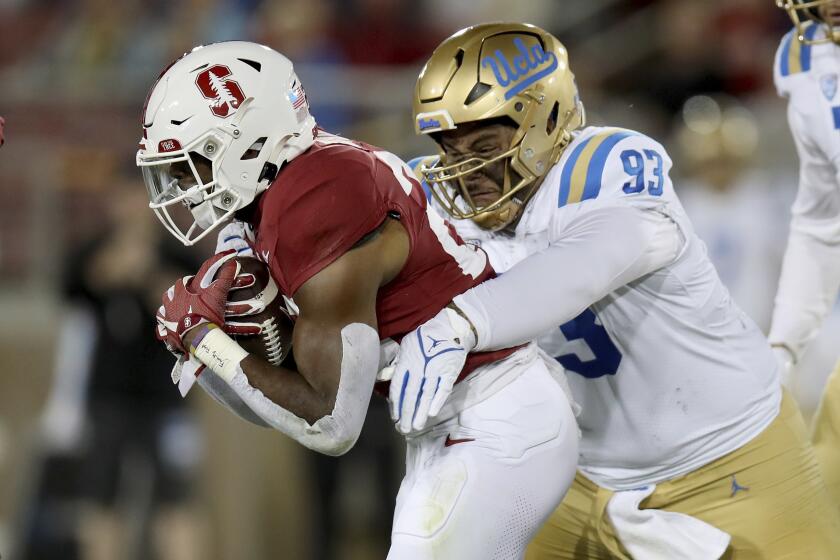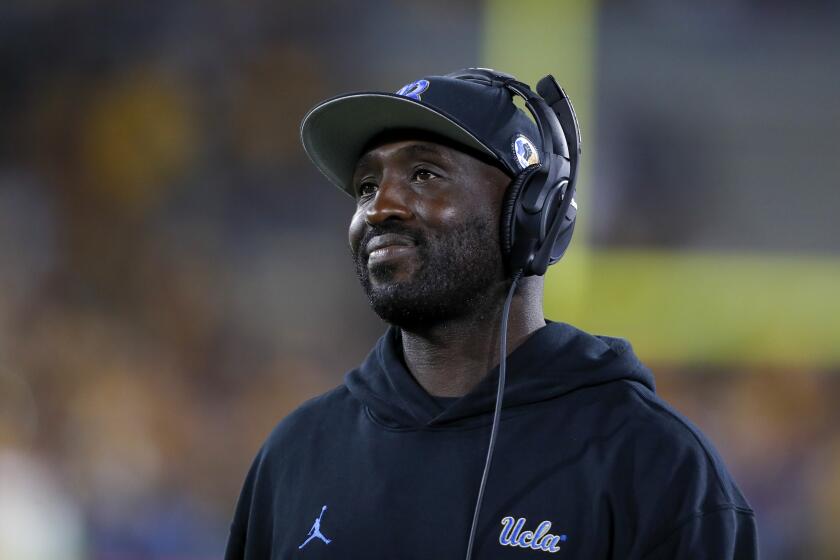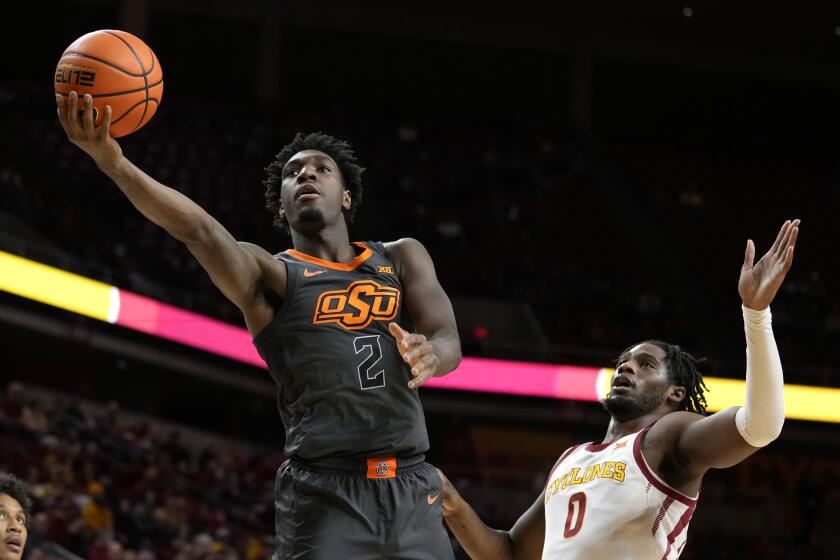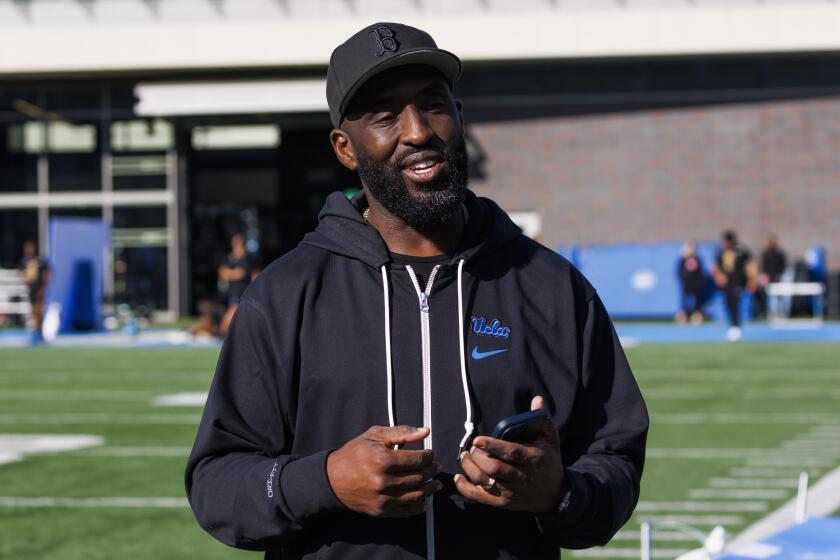Stressed Out
There’s no use pretending that the Loyola Marymount basketball team, winless this season, has much of a chance against UCLA tonight. Even the Lions’ acting coach, the ironically named Max Good, acknowledges: “On paper, it’s certainly a mismatch.”
But nothing the 14th-ranked Bruins might do to his players, no lopsided score, could compare to what they have already endured.
They have lost 10 games in a row. So many of them have fallen to injury that, at a recent game, the athletic director swore he counted more players in street clothes than in uniform.
Most difficult, the Lions have lost the charismatic and well-known coach hired only months ago to lead them to brighter days.
“That’s something we don’t focus on right now,” freshman guard Jarred DuBois said. “That’s out of our control.”
It was just last April that the Jesuit school hired Bill Bayno.
Bayno’s resume included five-plus seasons coaching Nevada Las Vegas and stints as an assistant under the likes of John Calipari, P.J. Carlesimo and Larry Brown. He also came with baggage.
UNLV fired him in 2000 after the program got hit with NCAA sanctions for improperly recruiting Lamar Odom. There was something more -- Bayno had an alcohol problem.
The native New Yorker, who could not be reached for this article, recently told The Times that he stopped drinking in 2002. He was working as an assistant for the Portland Trail Blazers when Loyola Marymount decided to give him another shot at the college level.
“He’s a terrific person,” Athletic Director Bill Husak said. “And he felt like this place was home.”
Everything went smoothly at first as Bayno scored some wins on the recruiting trail and began working with a group of players picked to finish near the bottom of the West Coast Conference.
But as the Lions lost their first few games, people close to the program noticed a problem. One that did not involve drinking.
Bayno wasn’t sleeping well or, sometimes, at all. Nor was he eating much. After his assistants went home at night, he would stay up watching videotape in hopes of finding some detail that could help his team.
“He’s a good soul and he takes responsibility for everything,” Husak said. “At the end of the day, he couldn’t put that aside.”
In late November, Bayno released a statement saying he had been “diagnosed with a serious medical condition, in part, related to the stress and anxiety of head coaching.” Friends say that depression forced him to take a leave of absence.
His players were in a state of shock and the university provided counseling.
“We have a young team that was attached to Bill,” Husak said. “That loss, in the short term, was difficult to deal with.”
Less than a month later, administrators report that Bayno is feeling better and they remain hopeful he can return. In the meantime, the Lions are dealing with a rash of injuries
Leading scorer and rebounder Vernon Teel is out four to six weeks because of a broken foot, while Terron Sutton and Tim Diederichs are done for the season. Among the seven healthy scholarship players remaining, three are freshmen and two were previously walk-ons.
There have been competitive games, including an 11-point loss to 12th-ranked Notre Dame. There have been blowouts at Arizona and UC Santa Barbara.
“They are a little bewildered and perplexed at times,” Good said of his young players. “We just pray they don’t hit the wall.”
UCLA Coach Ben Howland can sympathize. He knows and likes Bayno, calling him “a great guy, a great coach. I hope he makes it back.” But his players insist they won’t ease up against a winless opponent.
“Those are the scary teams, I’ll tell you that much,” guard Darren Collison said. “Those are the teams that are going to be most hyped to play against us.”
The Lions certainly won’t ask for pity when they visit Pauley Pavilion tonight.
DuBois, a freshman thrust into the role of floor leader, doesn’t like to dwell on his team’s struggles. He parrots the standard coach-speak about working hard, taking one game at a time.
He does, however, allow himself a peek into the future.
“Once we get through this,” he said, “we’re going to look back and say, ‘Man, remember how tough that was?’ ”
--
Go beyond the scoreboard
Get the latest on L.A.'s teams in the daily Sports Report newsletter.
You may occasionally receive promotional content from the Los Angeles Times.




